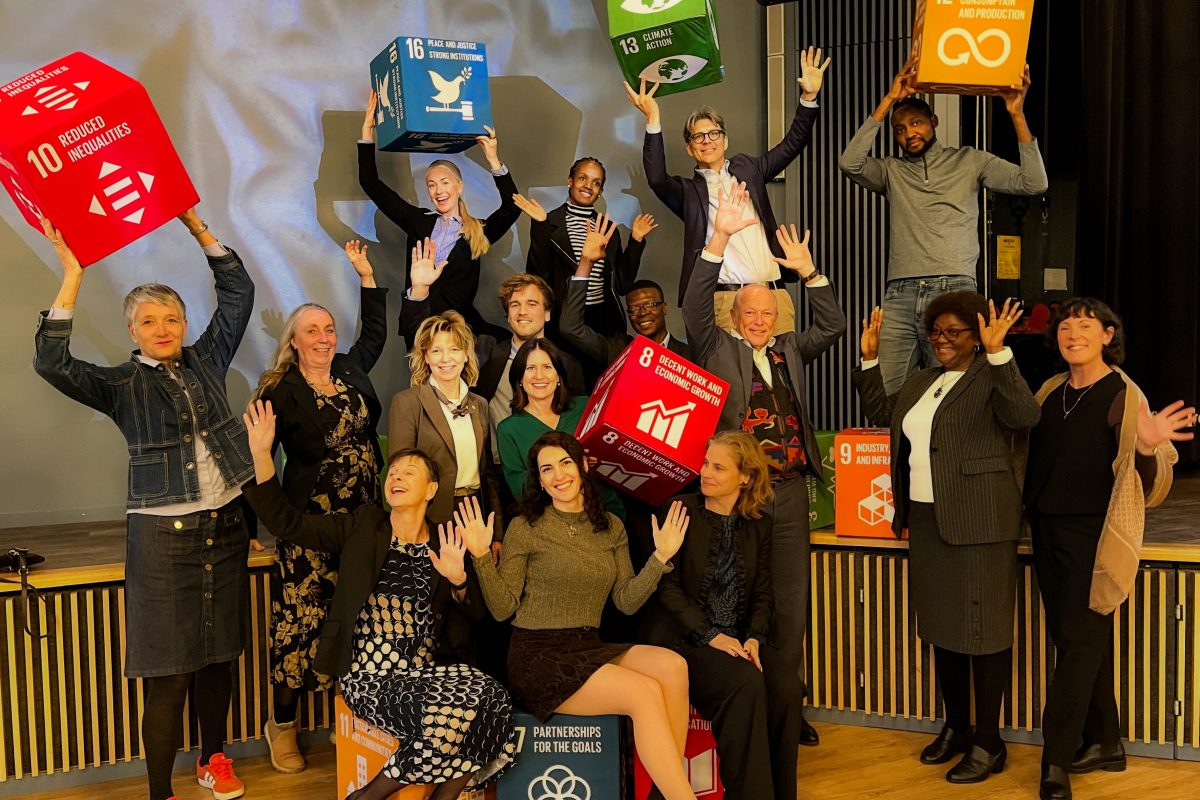STOCKHOLM — Makerere University and Karolinska Institutet (KI-Mak) marked 25 years of collaboration on Oct. 15, 2025, with a hybrid forum on research equity, highlighting lessons for universities striving toward fair and sustainable global partnerships.
The event, part of the Global Conversations on Sustainable Health, explored the theme, “Exploring Power Dynamics & Equity in Partnerships.” Scholars, policymakers, and university leaders gathered to discuss how institutions can build collaborations grounded in trust, shared ownership, and mutual respect.
Organized by the Centre of Excellence for Sustainable Health (CESH), a joint initiative between Makerere University and Karolinska Institutet, the forum reflected on how equitable partnerships drive progress toward the 2030 Sustainable Development Goals.
Hours before the event, Sweden’s Ambassador to Uganda, H.E. Maria Håkansson, posted on X (formerly Twitter):
“The partnership between Makerere University and Karolinska Institutet is both dynamic and exemplary in how many years of development cooperation can lay the foundation for mutually beneficial relations between institutions in Sweden and Uganda.”
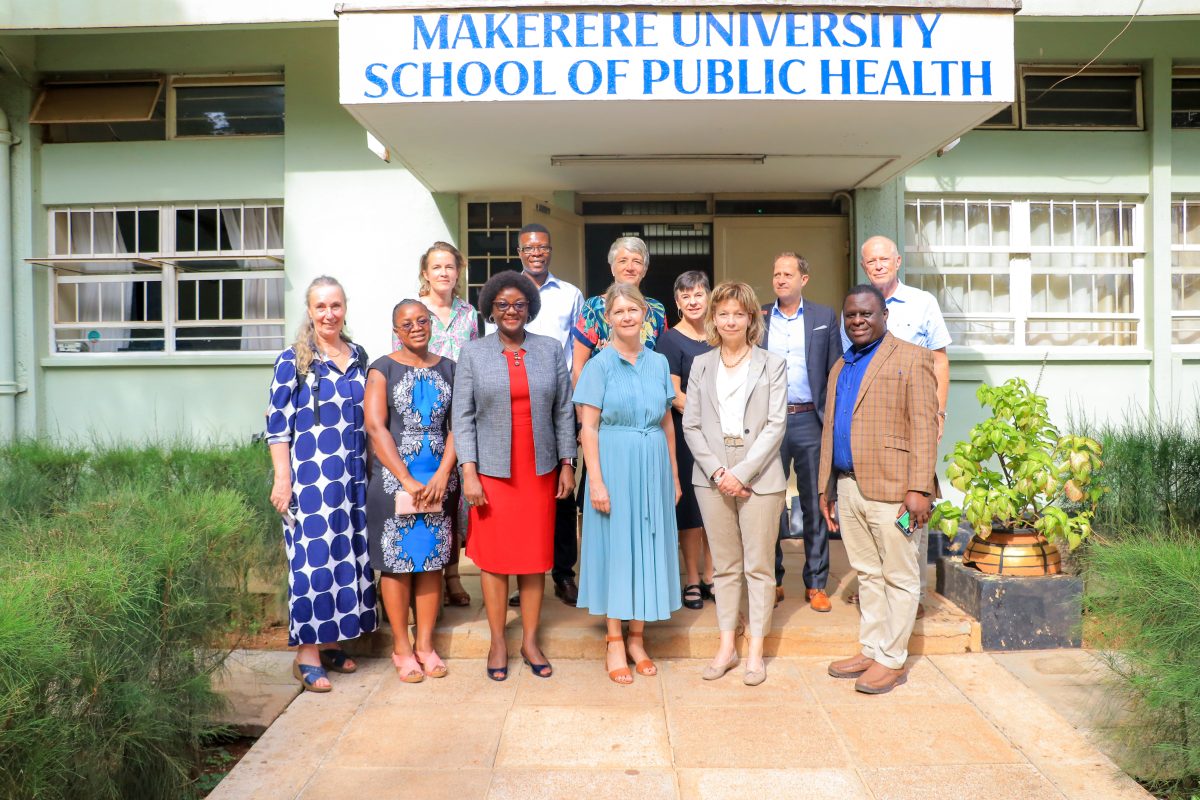
Equity, Trust, and Warmth at the Core
Panelists navigated questions of power, agency, and mutual respect. Policymakers, researchers, and academics agreed that successful partnerships depend not only on fairness but also on warmth, the human connection that sustains collaboration and ensures initiatives respond meaningfully to local realities.
Dr. Andreas Göthenberg, executive director of the Swedish Foundation for International Cooperation in Research and Higher Education (STINT), recalled that earlier models often reduced African researchers to “data farmers” in one-directional projects led from the North.
“We now support balanced research collaborations, not capacity building alone,” he said.
Over the past decade, he added, STINT has seen a surge of high-quality proposals from African researchers seeking genuine collaboration.
“When partners bring different expertise and learn from each other, that is when collaborations work well,” he said. “Institutions with fewer resources can now do very advanced things; that’s a real game changer.”
Göthenberg said Africa’s rapid advances in microfinancing, cloud computing, and even space research show that “technology development means institutions with fewer resources can still do very advanced things,” offering lessons for innovation systems in Europe.
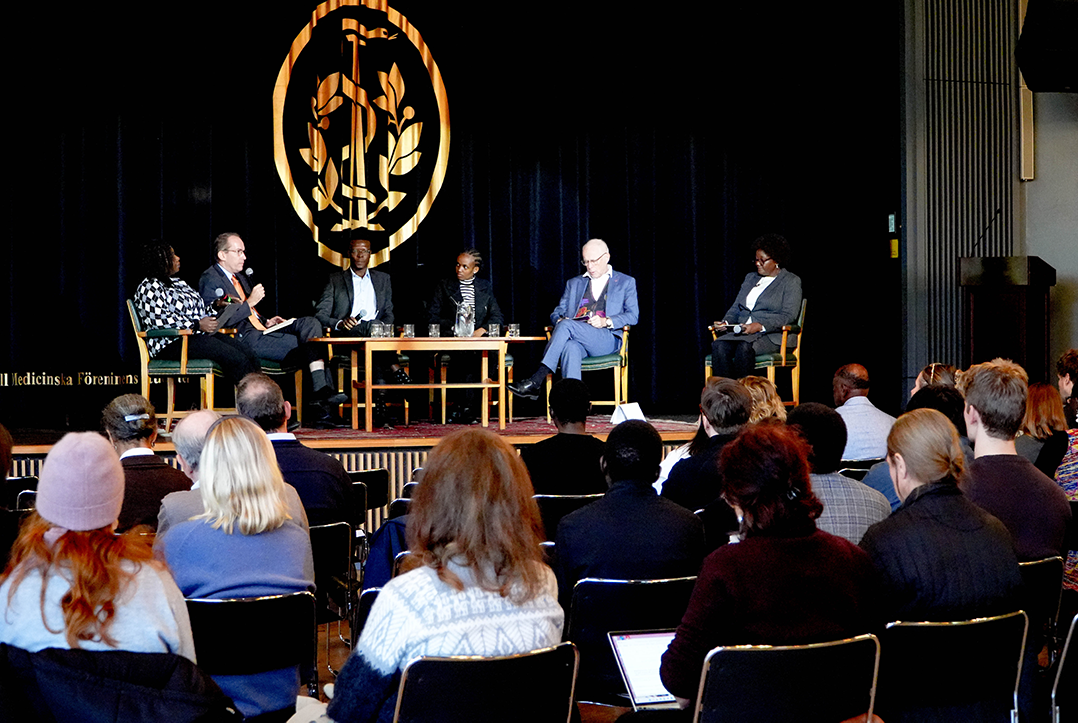
Why Equitable Partnerships Matter
Professors Rhoda Wanyenze and Stefan Swartling Peterson have argued that traditional models often concentrate leadership and funding in the Global North, thereby limiting the agency of Southern partners.
Their work from long-term collaborations in Ethiopia, Uganda, Lao PDR, and Vietnam shows that shifting leadership to where research occurs strengthens local capacity and aligns agendas with community needs.
They demonstrate that equity relies on mutual trust, transparency, and shared decision-making, principles that transform funding into a tool for empowerment rather than dependency. Joint PhD programs, reciprocal staff exchanges, and twinned supervision models have further enabled two-way knowledge flow and reduced brain drain.
“Partnerships grounded in reciprocity, inclusion, and respect are not only ethically sound but also more effective,” Wanyenze said. “They build local ownership, lasting capacity, and context-driven innovation.”
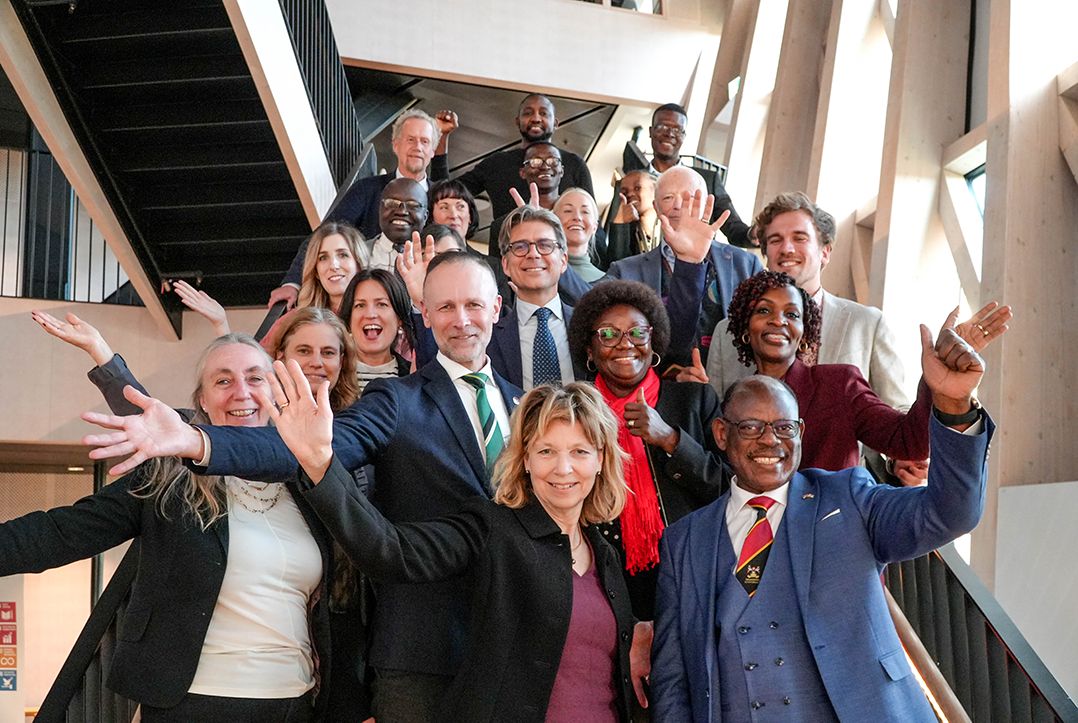
Championing South-to-South Knowledge Exchange
Associate Professor Caroline Wamala-Larsson, director of the SPIDER program at Stockholm University, underscored that the Global South must set its research agendas.
“The agenda must be set by Southern institutions. Swedish institutions act as collaborators, not directors,” she said.
She cited projects in Uganda, Tanzania, Rwanda, Bolivia, and Mozambique where South-to-South learning has flourished.
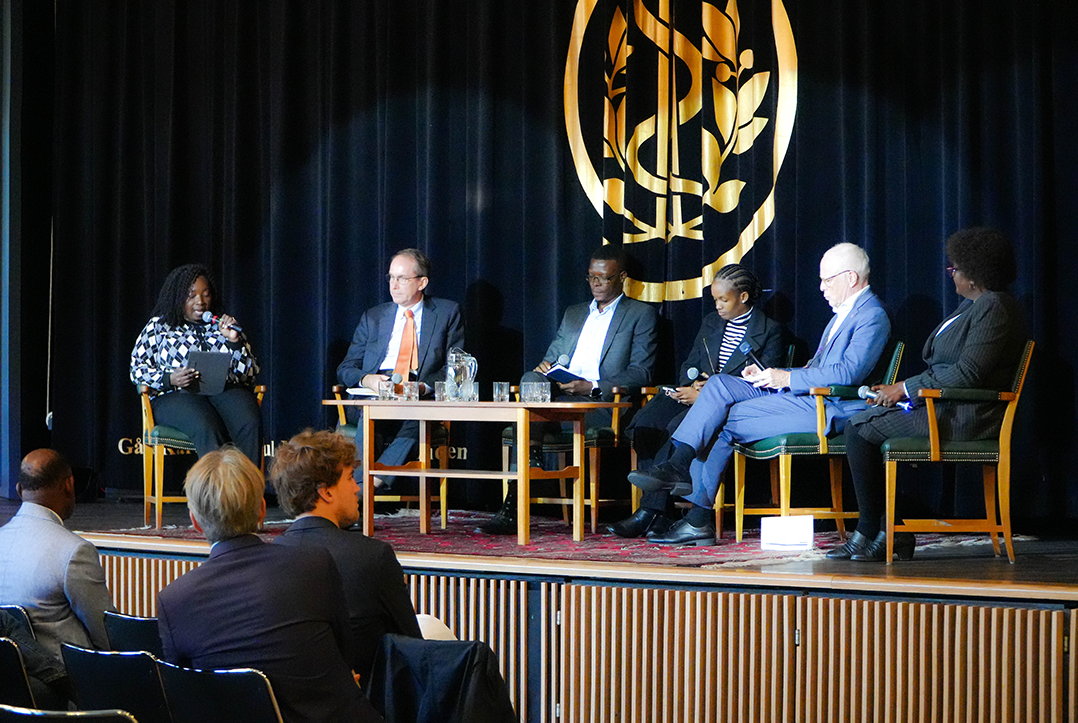
“Bolivians traveled to Tanzania to share source codes from a research management system. Now, the University of Dar es Salaam wants to adopt it,” she said. “Solutions developed within the South often fit local contexts better than Northern models.”
Wamala-Larsson added that innovation and digital transformation have strengthened institutional systems. “We need new funders, private sector partners, and universities to participate equally.” Respect for each partner’s contribution is essential for sustainability,” she said.
Adapting to a Changing Global Landscape
Shifting global priorities and limited funding are reshaping how universities collaborate. Ms. Brenda Wagaba, partnerships officer at Makerere University, noted that while funding remains limited, the Government of Uganda, for instance, has taken steps to support local research through the Research and Innovation Fund. “The government started setting aside money for university research even before the recent cuts,” she said.
“Now, with those cuts, the need for sustained domestic investment is even greater.” She added that such initiatives strengthen the confidence of Southern partners to engage as equal contributors in global collaborations.
Dr. Rawlance Ndejjo, a Makerere University researcher, said local initiatives could help sustain momentum. “Local funding opportunities allow countries to find resources for research and partnerships. Such efforts can improve equity through bottom-up collaborations,” he said.
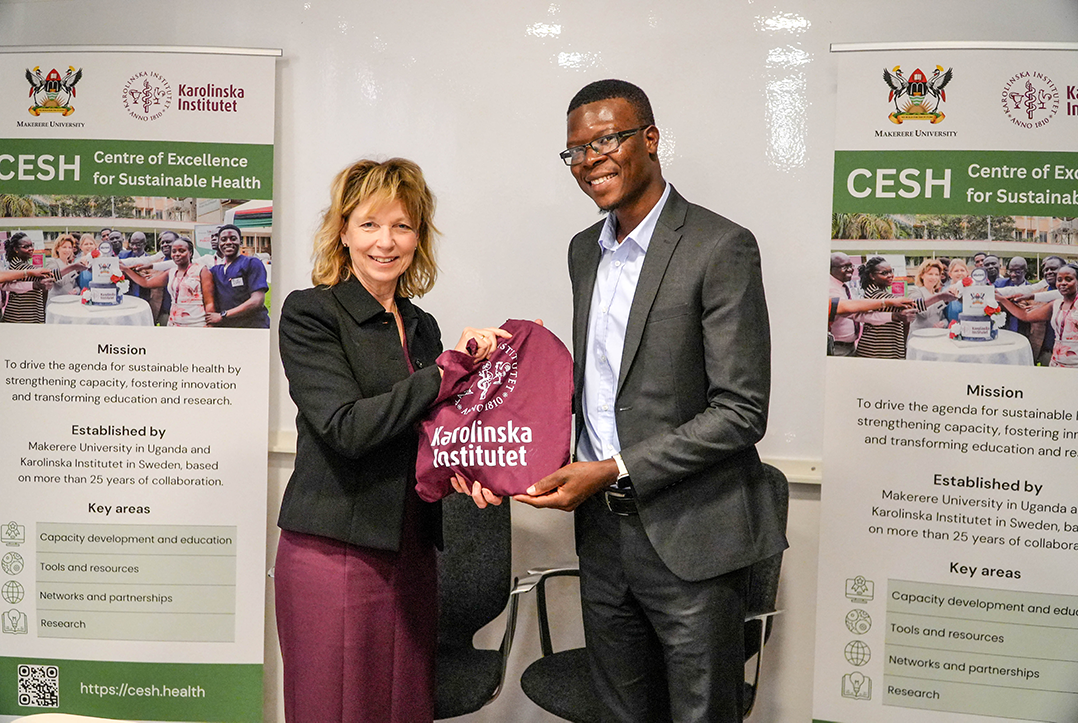
Göthenberg noted that new opportunities lie in multidisciplinary work. “Many of the challenges we face today demand broadly defined solutions,” he said. “Multidisciplinary projects lead to broader societal impact and stronger partnerships.”
He also pointed to Africa’s demographic advantage: “With its young population and rapid innovation, Africa is driving technological development in ways that can benefit both continents.”
Equitable Partnerships Deliver Results
Wagaba said engaging communities early is key to success. “When we engage communities early, we can bridge the gap between large-scale interventions and local acceptance. Whether it’s water, vaccines, or health infrastructure, success depends on understanding immediate community priorities,” she said.
She cautioned that top-down projects often fail to deliver lasting impact.
“You may build a vaccine plant or develop a vaccine, but if a community’s immediate need is safe water, your intervention will falter,” she said, adding that warmth, respect, and open communication are as critical as technical expertise.
Makerere Vice Chancellor Prof. Barnabas Nawangwe highlighted tangible results from Sweden’s long-term support.
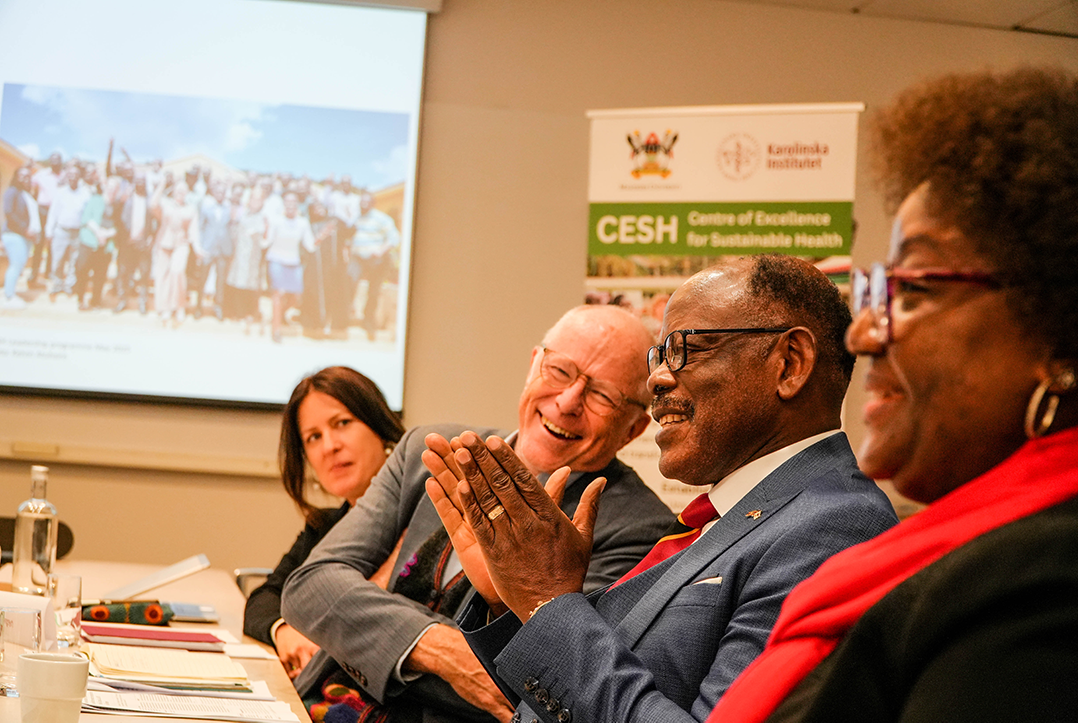
“Under the SIDA program, 500 PhD students were trained, all of whom returned to Uganda,” he said. “The program made them feel at home while gaining knowledge abroad. Without mutual respect, equity will always face challenges.”
Prof. Annika Östman Wernerson, president of Karolinska Institutet, said sustainable partnerships depend on continuous engagement.
“Every collaboration begins with people meeting. Warmth and curiosity are crucial between individuals and institutions,” she said. “Equity is not static; it requires continuous work. Trust and transparency are critical.”
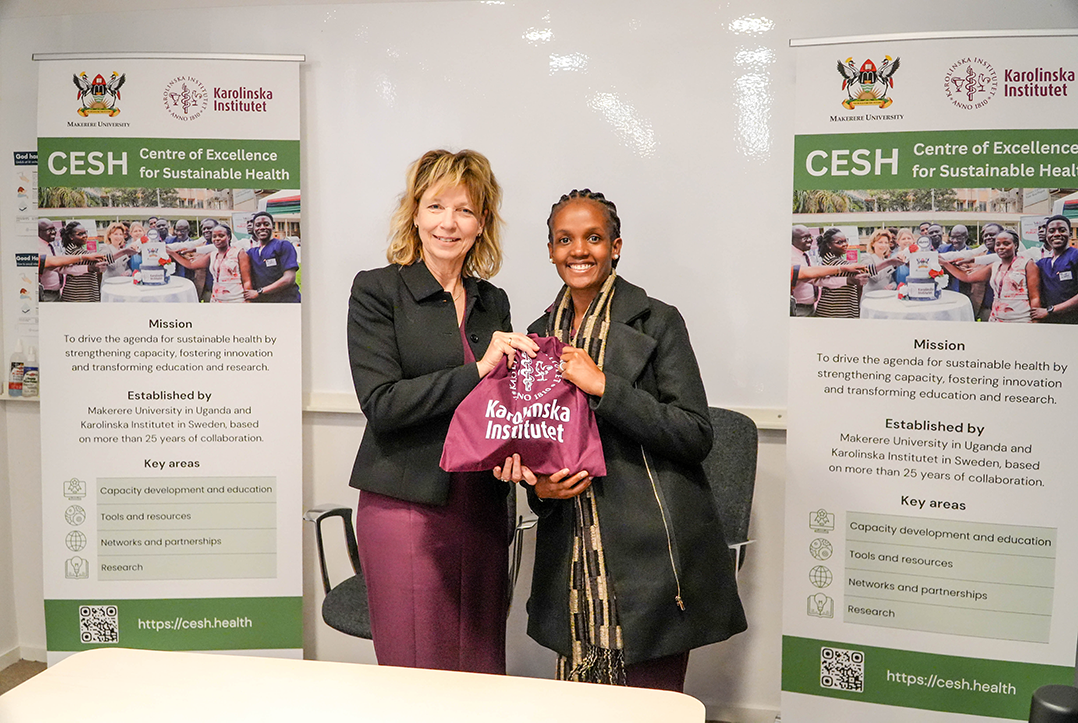
A Global Model for Sustainable Partnerships
The 25-year collaboration between Makerere University and Karolinska Institutet demonstrates how long-term, equitable partnerships can strengthen research systems and inform policy.
As Nawangwe put it:
“Students return home, communities benefit, and research informs global health policy. This is a model of how equity and trust drive sustainable partnerships.”
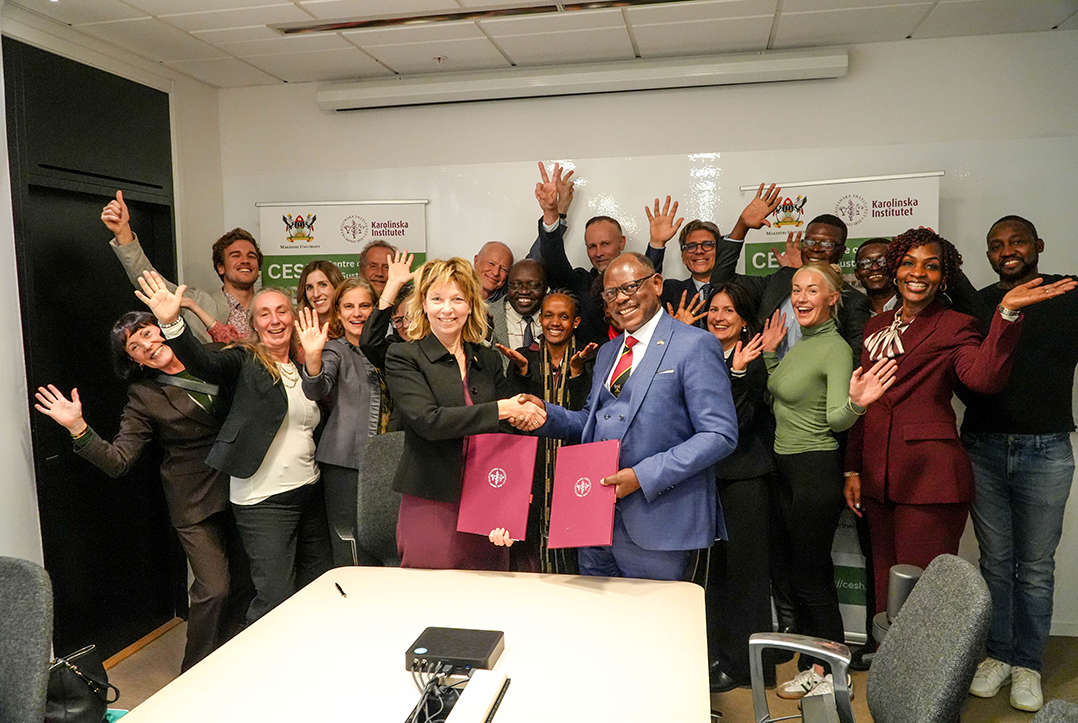
The Makerere–Karolinska (KI-Mak) partnership shows how universities, funders, and governments can work together fairly and Like many others working in this field, the Center recognises that there is still much to learn and discuss about how partnerships can continue to evolve through openness, dialogue, and shared reflection.
As Makerere and Karolinska look to 2030, their renewed agreements promise more than ceremonial goodwill. The two universities will intensify exchanges between students and faculty, expand joint research, share academic output, and organise lectures, conferences, and workshops. They will also open new paths for training, scientific collaboration, and shared learning. After 25 years, the partnership has proven that long-term cooperation can endure and excel with mutual respect, steady investment, and a clear purpose.
By Davidson Ndyabahika
Photos by Kseniya Hartvigsson


